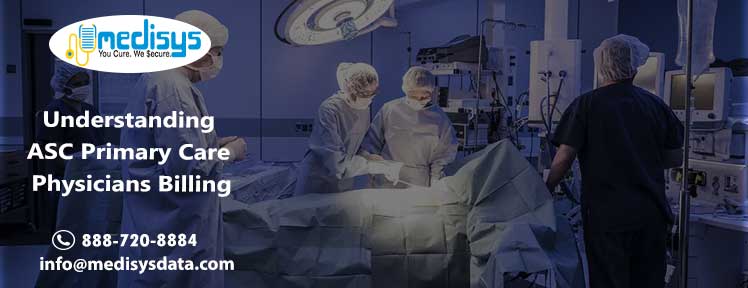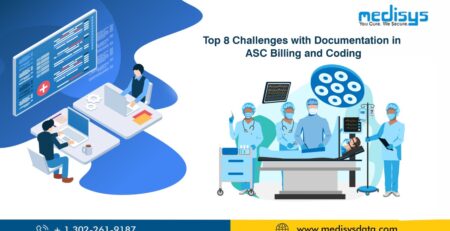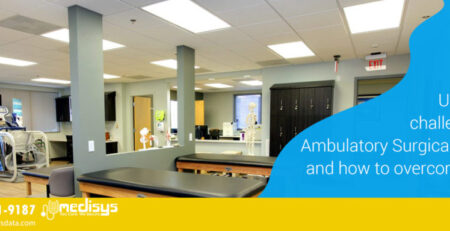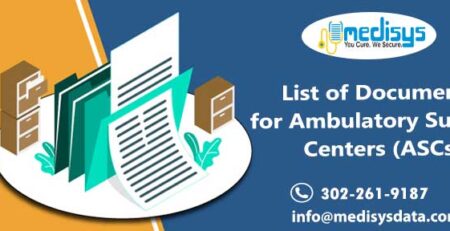Introduction
The healthcare landscape is ever-evolving, and with it, the way medical services are delivered and billed. Ambulatory Surgery Centers (ASCs) have emerged as popular settings for various outpatient procedures, offering convenience and cost-effectiveness compared to traditional hospital stays. However, billing practices in ASCs, particularly for primary care physicians (PCPs) involved in patient care, can be intricate and nuanced. This article aims to shed light on this specific aspect, guiding PCPs through the complexities of ASC primary care physicians billing and highlighting key considerations for successful navigation.
Understanding ASCs and ASC Billing
Imagine a healthcare facility specifically designed for minimally invasive outpatient procedures. That’s essentially what an ASC is. Equipped for surgeries like colonoscopies, cataract removals, and pain management injections, ASCs offer patients quicker recovery times and lower costs compared to full-fledged hospital stays.
But how does billing work in this unique setting? Unlike traditional physician billing or facility billing, ASC billing involves a blend of both. The facility fee covers the use of the ASC’s resources, including the operating room, equipment, and nursing staff. Separately, the professional fee compensates the surgeons and other healthcare professionals involved in the procedure, including PCPs in certain cases.
The Crucial Role of PCPs in ASCs
PCPs play a crucial role in the ASC ecosystem. They act as the first point of contact for patients, providing initial consultations, diagnoses, and referrals. In the context of ASC procedures, PCPs are responsible for:
- Pre-operative evaluations: Assessing the patient’s overall health and suitability for the ASC procedure.
- Referrals: Referring patients to the appropriate surgeon and ASC based on their individual needs.
- Coordination of care: Collaborating with surgeons and other healthcare professionals involved in the patient’s care.
- Post-operative care: Monitoring the patient’s recovery and providing follow-up care.
Clear communication and seamless coordination between PCPs and ASCs are essential for ensuring optimal patient care and efficient billing practices.
Specific Billing Considerations for ASC PCPs
As mentioned earlier, PCPs typically bill separately for their services related to ASC procedures. This involves understanding two key components:
- Facility fee: This fee covers the use of the ASC facility and its resources during the procedure. The PCP is not involved in billing for this fee.
- Professional fee: This fee covers the services rendered by the PCP, such as consultations, evaluations, and follow-up visits. PCPs bill for their professional fee using specific Current Procedural Terminology (CPT) and Healthcare Common Procedure Coding System (HCPCS) codes relevant to the ASC setting.
Understanding these codes and their accurate application is crucial for PCPs to ensure proper reimbursement for their services. Common codes in ASC primary care physicians billing include:
- 99213: Initial consultation for a new patient
- 99214: Subsequent consultation for an established patient
- 99212: Established patient office visit for an urgent problem
- 99050: Pre-operative evaluation and management
Challenges and Opportunities
Navigating ASC billing can be challenging for PCPs, especially for those unfamiliar with the intricacies of coding and different insurance policies. Staying updated on evolving regulations and ensuring accurate documentation are additional hurdles. However, efficient ASC primary care physicians billing offer significant opportunities for PCPs:
- Increased Revenue: Proper coding and billing practices can optimize reimbursement for services rendered, leading to increased revenue potential.
- Improved Patient Care: Streamlined billing processes can contribute to smoother patient experiences and better overall care coordination.
- Enhanced Efficiency: Utilizing technology and automation tools can streamline billing tasks, freeing up valuable time for patient care.
Looking Ahead: Future Trends
The future of ASC billing and PCP involvement is likely to be shaped by several key trends:
- Focus on value-based care: The healthcare industry is shifting towards value-based care models, which reward quality outcomes rather than the volume of services provided. This could impact ASC billing practices and potentially lead to increased collaboration between PCPs and ASCs.
- Technological advancements: Technology is playing an increasingly important role in healthcare billing. Electronic health records (EHRs) and automated billing systems can streamline the billing process for ASCs and PCPs alike.
- Data analytics: Data analytics can provide valuable insights into ASC billing patterns and identify areas for improvement. This information can be used to optimize billing practices and ensure accurate reimbursement for PCPs.
To conclude,
While ASC primary care physicians billing might seem complex at first glance, understanding the core principles and leveraging available resources can significantly ease the process. By staying informed, collaborating effectively with other healthcare providers, and embracing new technologies, PCPs can ensure accurate billing, optimize revenue, and ultimately contribute to improved patient care within the ASC setting.
Medisys as ASC Billing Partner
Navigating the intricacies of ASC primary care physician billing can be a daunting task for busy healthcare professionals. Partnering with a reliable medical billing company like Medisys, can alleviate this burden and ensure accurate and timely reimbursement. Medisys has a proven experience in ASC billing, a deep understanding of relevant codes and regulations, and a commitment to clear communication and transparency. With Medisys as your billing partner, you can streamline your billing processes, maximize your revenue, and allow you to focus on delivering exceptional patient care.
References:












